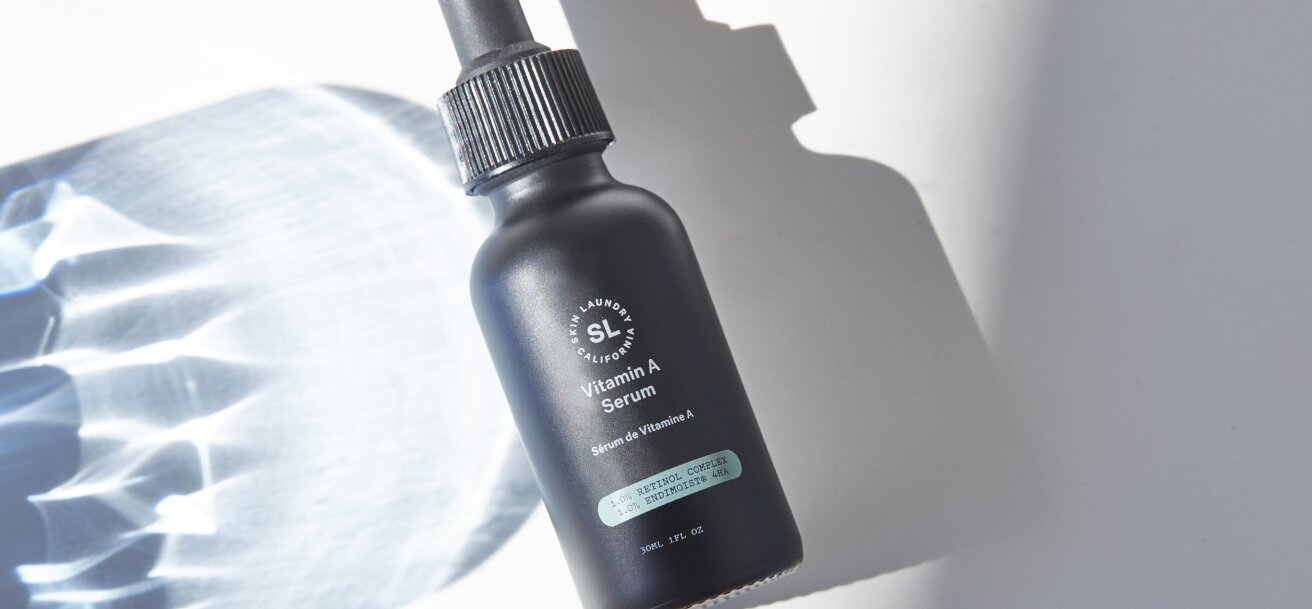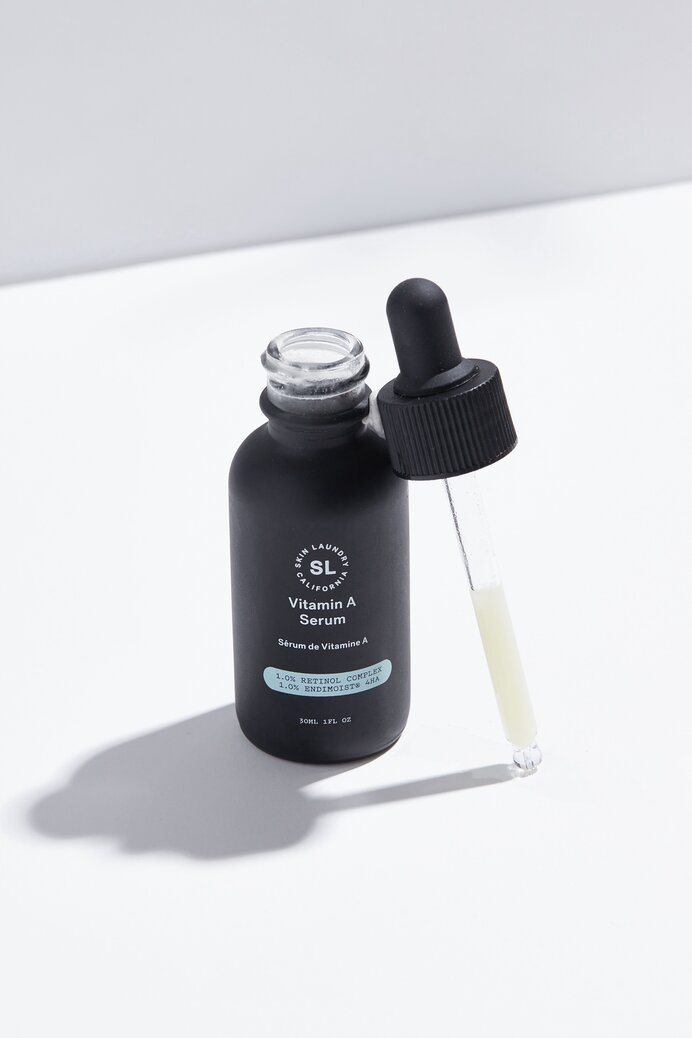
INGREDIENTS
All About Vitamin A and Retinol
Find out why this hero skincare ingredient is a favorite of dermatologists and skincare experts.
More studied than any other ingredient on the market and with a laundry list of proven benefits, vitamin A (also known as retinol) is the gold-standard in skincare actives. The reason? It targets most of our top skin concerns by speeding up cellular turnover, increasing collagen production and reversing damage caused by environmental factors like pollution and UV radiation. With regular use, retinol can therefore improve skin tone and texture, reduce the appearance of fine lines and wrinkles and minimize the appearance of pores. It’s also effective at preventing, as well as treating, acne.
Ready to put the skincare hero to work for you? Read on to learn more about vitamin A and retinol, including how to incorporate these ingredients into your glow-boosting regime.
What is Vitamin A?
Vitamin A (also known as retinol or retinoic acid) is a nutrient that is vital to skin health and the immune system and has antioxidant properties that protect cells against the effects of free radicals. Your body does not make vitamin A so you must get it through foods, supplements or, in the case of skincare, topical products.
To learn more about antioxidants and free radicals click here.
What is Retinol?
Retinol is a derivative of vitamin A. When applied topically, our skin converts retinol into retinoic acid which in turn encourages cell turnover and boosts collagen production, improving the appearance of fine lines and wrinkles, skin texture and tone, reducing discoloration and helping to reduce breakouts and blemishes.
How do Vitamin A / Retinol benefit the skin?
Vitamin A and retinol deliver many skin benefits when applied topically, promoting a smoother, clearer, healthier complexion thanks its natural capacity to kickstart reparative processes within the skin.
Prevents acne and enlarged pores
Retinol loosens the connections between the cells on the top layer of the skin. This speeds up cell turnover, which in turn accelerates skin renewal and unclogs pores reducing the appearance of enlarged pores and helping to prevent the congestion that can lead to acne.
Evens out hyperpigmentation and sunspots
By increasing cell turnover, retinol helps rid the skin of old, pigmented cells to make way for new cells helping to fade hyperpigmentation and reverse sun damage delivering brighter, more even-toned complexion. Retinol can also slow the production of melanin to reduce the appearance of dark spots.
Reduces the appearance of fine lines and wrinkles
Retinol increases new skin cell production, stimulates collagen production and protects existing collagen against degradation, reducing the appearance of fine lines and wrinkles for a plumper, smoother complexion.
Vitamin A Serum Benefits
Vitamin A serums are a skincare powerhouse, renowned for their ability to transform the complexion over time. Whether you’re looking to smooth fine lines, even out texture or brighten dull skin, a well-formulated Vitamin A serum delivers visible results while supporting long-term skin health.
Unlike quick fixes, Vitamin A works at a cellular level, stimulating collagen production, encouraging cell turnover and helping to prevent the formation of new imperfections. Lightweight, potent and suitable for most skin types (when used correctly), this serum can become a cornerstone of your daily routine.
Key Benefits of Vitamin A Serum
- Smooths Fine Lines & Wrinkles: Stimulates collagen and elastin for firmer, smoother skin.
- Boosts Cell Turnover: Encourages shedding of dead skin cells, revealing brighter, fresher skin.
- Improves Skin Texture: Reduces roughness, congestion and the appearance of enlarged pores.
- Fades Hyperpigmentation: Helps lighten sunspots, age spots and post-inflammatory marks.
- Supports Long-Term Skin Health: Strengthens the skin barrier and improves elasticity over time.
- Prevents Future Breakouts: Keeps pores clear and reduces the likelihood of clogged follicles.

How do I incorporate Vitamin A / Retinol into my skincare routine?
Retinol can and should be used with hydrating and moisturizing ingredients. Skin Laundry Vitamin A Serum contains 1.0% encapsulated retinol, which is activated upon application, while hyaluronic acid and squalane hydrate and moisturize the skin.
If you are using retinol for the first time, we recommend starting off two or three times a week and then slowly building up to regular use.
As with all actives, it’s best not to mix retinol with other active ingredients like AHAs and BHAs, as this can lead to dryness and irritation. Additionally, women who are pregnant or nursing may wish to consult with their doctor or dermatologist about retinol use.

What about Vitamin A / Retinol and sun exposure?
Retinol should be used as part of your nighttime routine, as it can make skin thinner and increase photosensitivity. Always use a broad-spectrum sunscreen as part of your daily routine if you are using retinol.
Because of retinol’s tendency to increase the skin’s sensitivity to sun, some wonder whether the ingredient can be used in the summertime. The answer is yes, if you follow the above recommendations to keep the skin safe from photodamage.
As in any other season, apply retinol as part of a nighttime routine, and use a broad-spectrum sunscreen with an SPF30 or higher as part of your daily routine.
Doctor’s Note
Because retinol can cause irritation in some skin types, you may want to ‘sandwich’ it. Retinol sandwiching involves applying retinol in between two layers of moisturizer to slow down its absorption into the skin and reduce any irritation or dryness.
Additional Reading
Your Shopping Bag
Your shopping bag is empty











